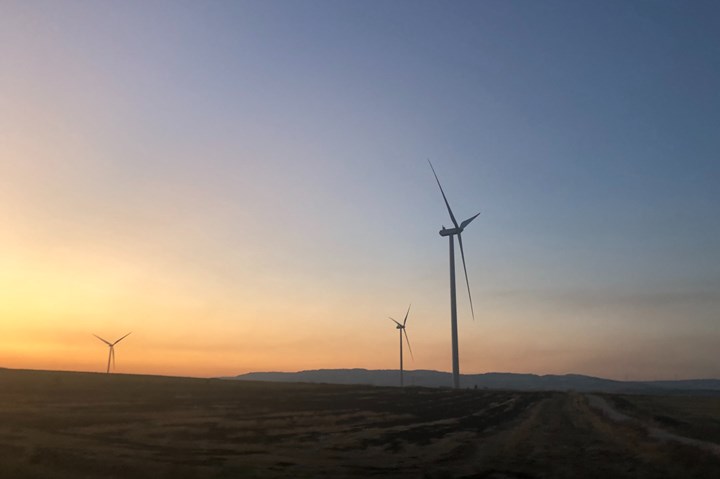European partnership drives forward novel process development for GFRP recycling
Together, Aker Offshore Wind, Aker Horizones and the University of Strathclyde will scale up and commercialize the glass fiber recycling process, which could potentially serve 50% of global glass fiber demand.

Photo Credit: Alessandro Stigliani
Old wind turbine blades could be recycled and reused under plans being developed by Aker Offshore Wind (Lysaker, Norway), Aker Horizons (Norway) and the University of Strathclyde (Scotland). The three organizations have signed a memorandum of understanding (MOU) aimed at driving forward the development of recovery processes for used glass fiber products, including a novel process developed at Strathclyde.
Glass fiber-reinforced polymer (GFRP) composites, used in wind turbine blades around the world, are recognized as a hard-to-break-down source of pollution. Today, the partners note, nearly all thermoset GFRP scrap generated in the U.K. and Europe goes to landfill or energy from waste. Further, the volume of GFRP scrap is set to increase substantially, with end-of-life (EOL) wind turbine blades likely to be a major source of GFRP scrap in the U.K. by mid-2030s (Ørsted recently made an announcement that it will recover, reuse and recycle wind blades).
Findings from the University of Strathclyde also indicate a global increase of wind turbine blade waste from around 400,000 tons per annum in 2030 to around two million tons by 2050 (see “Defining the landscape for wind blades at the end of service life”). Therefore, recyclability and recycled content are increasingly important in construction processes.
“At Aker Offshore Wind, sustainability is about making business decisions that add value to our company, our stakeholders and society,” says Astrid Skarheim Onsum, CEO of Aker Offshore Wind. “Industrial waste is a challenge in most industries, and by teaming up with the University of Strathclyde, we have an opportunity to further develop a novel solution to a growing issue and apply it at scale across our segment and beyond.”
Under the terms of the MOU, the parties will scale up and commercialize a process developed at lab scale by Strathclyde for thermal recovery and post-treatment of glass fibers from GFRP scrap to achieve near-virgin quality glass fibers.
Drawing on decades of industrial innovation and operationalizing novel technologies, Aker Horizons and Aker Offshore Wind will contribute with funding and relevant competencies to bring the solution into an industrial setting. Furthermore, broad expertise in chemical processing and carbon capture within the wider Aker group, will ensure the industrialization to be safe and sustainable.
“This is a challenge not only for the wind power industry, but for all industries reliant on GFRP materials in their production and manufacturing,” says Dr. Liu Yang, head of Advanced Composites Group at the University of Strathclyde. “Retaining and redeploying the embodied energy in the fibers is essential as we move to a more circular economy.”
Developed by the Strathclyde’s Department of Mechanical and Aerospace Engineering, the GFRP recycling is said can turn composite waste into reusable fiber reinforcement and could serve 50% of global glass fiber demand if implemented worldwide. As the process produces both mid- to high-value fibers, a broad spectrum of the market can be covered, ranging from less demanding to high-performance products.
Related Content
-
Forvia brand Faurecia exhibits XL CGH2 tank, cryogenic LH2 storage solution for heavy-duty trucks
Part of its full hydrogen solutions portfolio at IAA Transportation 2022, Faurecia also highlighted sustainable thermoplastic tanks and smart tanks for better safety via structural integrity monitoring.
-
Recycling end-of-life composite parts: New methods, markets
From infrastructure solutions to consumer products, Polish recycler Anmet and Netherlands-based researchers are developing new methods for repurposing wind turbine blades and other composite parts.
-
JEC World 2022, Part 3: Emphasizing emerging markets, thermoplastics and carbon fiber
CW editor-in-chief Jeff Sloan identifies companies exhibiting at JEC World 2022 that are advancing both materials and technologies for the growing AAM, hydrogen, automotive and sustainability markets.












.jpg;maxWidth=300;quality=90)



